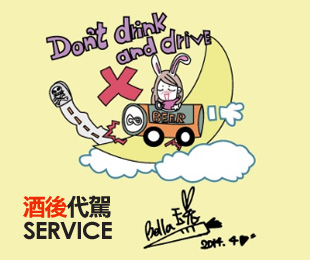Taipei Times-End drunk driving by the use of techn
By Vino Lin жһ—зҫҺеЁң
What is technology enforcement? A new government measure that took effect on March 1 stipulate that motorists whose driver’s license has been revoked for driving under the influence of alcohol are required to install an ignition interlock device on their vehicle after retaking ans passing their driver’s license test.
The measure is a good example of technology enforcement closely related to the persons involved.
Drunk driving is a criminal offense that can be prevented and the new preventive measure is needed for high-risk groups, such as repeat offenders.
An analysis of National Police Agency data on drunk driving convictions shows that the percentage of first-time offenders dropped gradually from 85.3 percent in 2007 to 67 percent in 2013, or 18.3 percentage points during the seven years.
However, the percentage of repeat offenders increased from 14.7 percent to 33 percent during the same period.
Moreover, Ministry of Transportation and Communications data showed that between January 2009 and December 2013, the percentage of repeat drunk driving offenders was 16.73 percent, but that rose to 36.86 percent between July 2010 and June 2015.
The constantly rising number shows the severity of the problem.
Repeat drunk driving offenders often lack a moral sense of traffic safety and a law-abiding spirit. They are opportunists with bad driving habits who think they can get away with it.
Effectively deterring them from repeating the offense requires a combination of measures. In addition to raising the fine, the government has implemented a series of new measures such as the mandatory installation of a breath alcohol ignition interlock device on the vehicles of repeat offenders.
This is one example of a preventive measure carried out with the help of technology enforcement.
The regulation stipulates that those whose driver’s license was revoked for driving under the influence must first complete 15 hours of drunk driving prevention courses or undergo at least 12 sessions of rehabilitation for alcohol addiction at a medical institution.
They must also pay for the courses or rehabilitation out of their own pocket and obtain a certificate of completion before they can apply to retake a driver’s license test.
After passing the test, they can only drive a vehicle with an ignition interlock device for a one year and they must pay the cost of renting the device.
If they fail to use an ignition interlock device or drive a vehicle without such a device after getting a new license, they would be fined between NT$6,000 and NT$12,000, and their vehicles would be seized and kept in temporary storage.
Anyone who blows into the breath sensor for someone else would also be fined between NT$6,000 and NT$12,000.
As drunk driving prevention awareness rises, most Taiwanese now avoid driving under the influence and rely on designated drivers.
Looking at drunk driving from the perspective of the “80/20 rule” — also known as the Pareto principle — we can see that based on traffic data and practical experience, more than 80 percent of drunk driving incidents are caused by repeat offenders, who account for less than 20 percent of overall offenders.
Hopefully, the ignition interlock devices will help eradicate the bad habits of the few drivers who jeopardize not only themselves, but also others.
Vino Lin is secretary-general of Taiwan Against Drunk Driving.
Translated by Eddy Chang
ж–Үз« дҫҶжәҗйҖЈзөҗпјҡhttps://www.taipeitimes.com/News/editorials/archives/2020/05/07/2003735957


